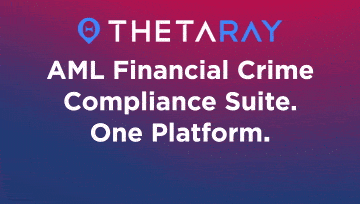News
Baltic AML Supervision, Examinations Venture Offsite
Baltic regulators increasingly use offsite inspections to rapidly identify and address emerging, illicit finance-related risks despite international concerns, Kristaps Markovskis, head of anti-money laundering oversight at the Bank of Latvia, said at an industry conference Wednesday.
At the opening panel of the ACAMS Baltics Symposium in Vilnius, Lithuania, Markovskis said that in the current round of evaluations, Moneyval, the Financial Action Task Force’s affiliate in Europe, has criticized the Bank of Latvia and other national regulators for not conducting what the organization views as a sufficient number of examinations in person.
“The main focus was … also on the penalties imposed, because this is the easiest way to measure effectiveness of supervision,” Markovskis said. “But I think nowadays … supervision … has changed, and we have put more efforts and focus on offsite supervision because it helps us to react immediately.”
Moneyval’s assessment of Latvia’s laws, regulations and efforts against illicit finance began in November, under a newer, stricter methodology adopted the month prior.
The Bank of Latvia, which had only six AML personnel on staff during Moneyval’s previous assessment of the country in 2019, now employs 26, and plans to examine nine onsite inspections of financial institutions for anti-money laundering purposes this year.
Financial institutions in Latvia regularly supply details of their customers and transactions in online questionnaires to the central bank, which then cross-references that information with import and export data from customs authorities to identify new areas of concern.
Banks that, for example, report a sudden spike in payments from nations in Central Asia or other countries prone to Russian sanctions-evasion schemes can expect an immediate request for more details, Markovskis told attendees of the conference in Vilnius on Wednesday.
“We identify which particular financial institution is generating this turnover [and] which particular customers,” said Markovskis. “We request this information … immediately—we don’t need to wait two or three years until we have an onsite inspection.”
AML supervisors from Lithuania and Estonia told attendees of the conference in Vilnius on Wednesday that they, too, increasingly rely on offsite supervision to spot problematic trends, but downplayed the possibility of scrapping onsite visits altogether.
Onsite inspections often unearth information that regulators then use to issue “very precise” warnings and recommendations, Arune Gabrielle Giraityte, chief AML specialist-coordinator at the Bank of Lithuania, said Wednesday.
“If the institution is less mature and basically does not react to softer supervisory recommendations, or if there are reasonable suspicions they are trying to hide something … there seems to be no other tool at our disposal than to go onsite and see for ourselves what’s going on,” Giraityte said.
Baltic regulators also discussed their preparations for handling applications for licenses under the EU’s new markets in crypto-assets regulation, or MiCA, a comprehensive framework that will subject cryptocurrency exchanges and other virtual asset service providers to safety-and-soundness, consumer-protection and other requirements.
Giraityte said most of the applications that the Bank of Lithuania has received under MiCA to date lack “clear” information on the origin of their shareholders’ wealth, fail to demonstrate that their senior managers are of good repute, or do not include other necessary details.
Latvian officials have meanwhile taken further steps to transform their capital, Riga, into a global hub for VASPs and other fintechs.
Markovskis acknowledged Wednesday that the move comes with financial crime-related risks that the Bank of Latvia plans to mitigate by tightly controlling who enters the market.
“They can’t just have a shell company in Latvia while providing services abroad,” Markovskis said, adding that applicants must also show they have embraced a culture of compliance. “We need to see that this is an important element for the company, that they are cooperative with supervisors and interested in improving their systems.”
Contact Koos Couvée at kcouvee@acams.org
| Topics : | Anti-money laundering |
|---|---|
| Source: | Latvia , Lithuania |
| Document Date: | March 26, 2025 |

